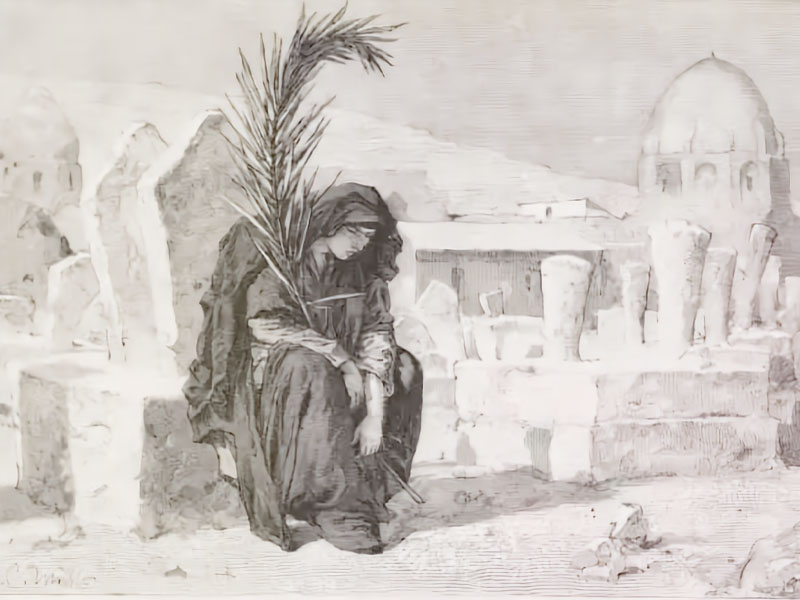Egyptian Laments for the Dead
Issue 46

By Dr Mahmoud Farghaly
Researchers of folk literature have not examined the nature of lamentation as a kind of folklore or discussed its origin, evolution, decline and disappearance.
Every type of traditional lament for the dead passes through three basic stages akin to the stages of human growth: emergence, spread, then death and transformation into another type of heritage. This is what we will focus on in our study: The theory of type, and the tools available to make the same type of reading tool and interpretation in addition to it being a tool of writing or oral narration. Researchers have failed to classify laments.
The researcher focuses on this artform, which became endangered decades ago. The remaining examples were collected from the elderly in the form of oral accounts, then transformed into abridged texts without context and ritual, focusing on their artistic features.
Several factors have contributed to the disappearance of this artform; most are related to the many social, cultural and religious changes in Egypt in recent decades, which researchers have noted. I refer to some of these changes in the study.
I would like to stress that it is very important to record oral heritage related to this art form and to promote this heritage so we can establish a literary genre by combining the oral and the written.
In the transformation stage, political and social changes in society create a cultural context that is hostile to many rituals and traditions, and we notice that writing and recording have changed oral literature. Narration did not match the circulation of written material. If recording drew our attention to the literary aspect of lamentation and its unique structure, it also caused its decline because the written form was not circulated among the elderly and women, who are the original creators of this art. It was circulated only among researchers and authors who are interested in collecting heritage. Lamentation has become a hated craft; the family of the deceased feel compelled to lament due to social pressure.
Recording is the most important stage in the life of any type of lament and the thread that connects the oral production and its circulation, especially if the people who lament – the elderly – have not learned to read or write.
Moreover, we note that other literary forms that are associated with life rather than death – such as the recording and study of mawwals, folktales and folk proverbs – have received increasing attention from the Egyptian state during the Pan-Arab era. Laments were not included because the experts hated them and the ways in which they circulated.



































































